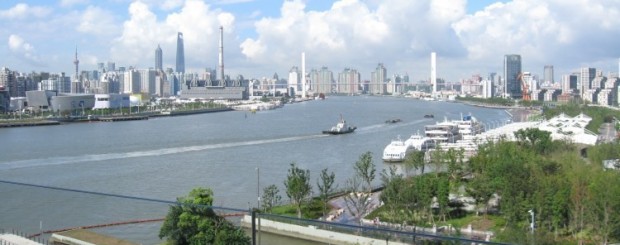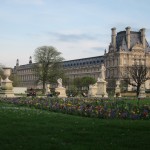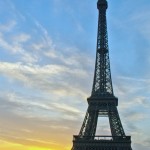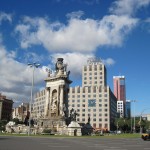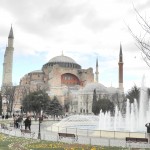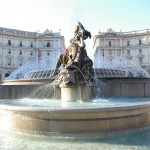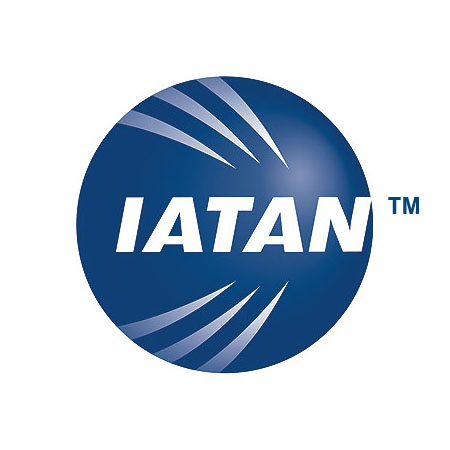China is the first nation to manufacture true porcelain in the world, thus its name, China. Jindezhen in Jiangxi Province is reputed as The Porcelain Capital of China. Porcelain made in Jingdezhen began to find its way to Europe in the 17th century and can be seen in many notable international museums today.
In November 2010, a Chinese antique vase was sold at auction in London for 43 million – a new record for a Chinese work of art. Why are Chinese vases so famous and so expensive? It will be answered once you visit Jingdezhen.
Also on the tour is a visit to Wuyuan in Jiangxi Province which has well-preserved ancient architectural buildings and homes in the countryside.
Daily Itinerary
Day 1
Arrive Beijing : Attend a welcome party with an introduction of the tour and local culture.
Day 2
Drum Tower, Hutong tour, Forbidden City, Tiananmen Square, Wang Fujing Street:’starting from the ancient landmark of Beijing the Drum Tower, you will have a traditional Beijing breakfast at the famous Yao’s Restaurant. The driver of a manpowered tricycle will take you through old Hutongs and tell you stories about each of them. You are welcome to stop and meet local families to experience their daily life. In the afternoon, visit the Forbidden City while being accompanied by a certified Chinese history teacher. The guide will tell you about the life of Chinese emperors, their historical legacies, and their secrets. South of the Forbidden City is Tiananmen Square, the largest public square in the world. Not far from Tiananmen’square is Wang Fujing Street, the commercial center of Beijing and home to a myriad of shops and restaurants. Take the opportunity to try Quanjude Roast Duck, Dong Laishun Hotpot, stop by China Photo Studio, Hengdeli Watch and Clock Shop. Each of these stores has been a landmark during the rapid development of this city. In the evening, enjoy nightly entertainment at the Beijing Opera, an acrobatic show and a Kung Fu demonstration.
Day 3
Huailai Great Wall, Summer Palace: Beijing is adjacent to different portions of the Great Wall like Badaling, Juyongguan and Mutianyu, but what you will visit is better preserved than any of those. This portion was built during the Ming Dynasty (1368-1644) and used to protect China from Mongrel raids. On the way to the Great Wall, there are many villages and towns which have several hundred years of history and have yet to be developed as tourist attractions. Every antiquated house harkens back to a simpler times. You will have excellent views to take photos of the Great Wall and because this area is more remote, you may examine the wall or sit on the beacon tower before heading back to lunch. In the afternoon, you will visit the most protected royal garden in Beijing the Summer Palace. At sunset, sailing on Kunming Lake followed by a royal feast to complete your day of travel. After dinner, you ll be treated to a Chinese medical massage.
Day 4
Beijing Jingdezhen: If you want to experience local morning exercises, you cannot miss the Temple of Heaven’s courtyard. Badminton, daibolo, Tai Chi, Kung Fu, singing Beijing Opera, flying kites and dancing, are all popular morning exercises in Beijing. You will have the chance to learn from local practitioners who will gladly teach you how to play before departing on the next part of your journey.After lunch, fly to Jingdezhen in Jiangxi Province.
Day 5
Jingdezhen: Visit the ancient kiln, known as the Live Porcelain Museum, which contains a collection of porcelain treasures. Follow the instructor to make porcelain ceramic in your favorite shape in the training center and watch the performance of the world’s first porcelain band. Stroll through the porcelain street and find some fine china and porcelain ceramics to buy.
Day 6
Wuyuan (Bus): Wuyuan, known as the most beautiful countryside in China, has attracted hundreds of top photographers all over the world. The unique ancient architecture against the emerald green mountains, with its clear rivers and crisscrossing paths in the fields have formed beautiful scenes in Chinese paintings. Wuyuan is also famous for Huizhou culture as well as the charming tea ceremony.
Day 7
Wuyuan – Mt. Sanqing (Bus): In the morning, climb to the top of Jiangling village and behold the beautiful view of Wuyuan. Then transfer to Mount Sanqing, dubbed as the “first fairy mountain of Jiangxi,,” Sanqing Mountain is a sacred place for Taoists and also famous for its granite forests, gorges and unique ecological scenes. The mountain is covered in mist for about 200 days each year. On misty days, dense fog envelops the mountain which creates the feeling of wandering in the clouds.
Day 8
Mount Sanqing:’sanqing Mountain’s fame as a sacred place for Taoists started in the Tang Dynasty (618-907), when Taoism was at its peak. Here you can learn Taoism Kung Fu and taste Taoism cuisine.As the only religious doctrine that actually originated in China, Taoist theology emphasizes that man is an integral part of nature. Everything should follow the way and rules of nature.
Day 9
Arrive Shanghai: After breakfast, take a bullet train to Shanghai.
Day 10
Shanghai Wu Zhen: Begin your morning by strolling through the old streets in downtown Shanghai on your way to admire the beauty of Yuyuan Garden, and taste various local delicacies in the Old Town district. In the evening, you will arrive in Wu Zhen, a beautiful and quiet water town near Hangzhou. After dinner, take a boat ride through the water city and immerse yourself in the calm river town while decompressing from the hustle of the big city.
Day 11
Wu Zhen Hangzhou: When you wake up in Wu Zhen, you will be greeted by elderly women washing clothes in the river, as old men do their morning exercises in the alleys throughout the city. Enjoy a simple breakfast and relax in the peace and quiet of a small water town before being transported to Hangzhou. Hangzhou is the birthplace of the Legend of White Snake, a beautiful love’story of a snake fairy and a young scholar. In the afternoon, you will visit a Longjing Tea garden and have the chance to bake tea leaves and drink tea with local artisans.
Day 12
Suzhou Shanghai: Start the day in Suzhou’s Chinese gardens and silk factories. In the past, it was the national silk center. Many silk masterpieces for the royal family were produced here. You ll have the chance to see the whole process of making silk at the Suzhou First Silk Mill, which has been in operation for than 80 years. Visit the Humble Administrator’s Garden, one of the finest Chinese gardens in the country. You will return to Shanghai in the evening and enjoy the flickering lights on the Bund and the winding Huangpu River.
Day 13
Departure
Social Share
Recent Packages
Essence of Europe
Europe Highlight Tours
Portugal & Spain
Turkey
Best of Italy
What’s Included
- Overnight hotel accomodations for all destinations with meals (as stated).
- Domestic transportation between destinations by either rail, car, or air.
- Taxes, surcharges, and fuel charges for transportation.
- Entry fees to each attraction or sightseeing excursion.
- A local English-speaking tour guide for each city. He or she will also assist with transfers.
Contact Us
- 440 E. Huntington Dr.
Suite 300
Arcadia, CA 91006 - Phone: (626) 802-4843
- Fax: (626) 993-6601
- Email: info@exo-tours.com

